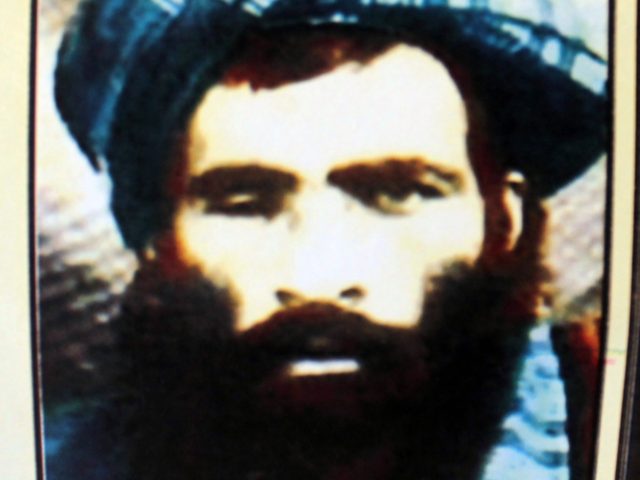The Afghan government this week repudiated claims in a new research-group report that the late Mullah Mohammad Omar, the notorious one-eyed founder of the Afghan Taliban, lived near a U.S. base in southern Afghanistan until his death, not in Pakistan as the American intelligence community and others believed.
Citing revelations contained in the report, the Wall Street Journal (WSJ) reported on Monday that “U.S. special-operations forces searched [Omar’s] house [in Afghanistan] once…but didn’t enter the concealed room where Mullah Omar lived until 2004.”
On Monday, Haroon Chakhansuri, the Afghan president’s deputy chief of staff, wrote on Twitter: “We strongly reject this delusional claim and we see it as an effort to create and build an [identity] for the Taliban and their foreign backers. We have sufficient evidence which shows he lived and died in Pakistan. Period.”
We strongly reject this delusional claim and we see it as an effort to create and build an identify for the Taliban and their foreign backers. We have sufficient evidence which shows he lived and died in Pakistan. Period! https://t.co/G2OsrNDGm0
— Haroon Chakhansuri (@hchakhansuri) March 11, 2019
WSJ obtained the report claiming that Omar lived in his native Zabul, an Afghan province that borders Pakistan, until his death in 2013, which the Taliban kept secret for two years until the Afghan intelligence agency revealed it in 2015.
Bette Dam, a Dutch journalist who wrote about her years reporting on the Taliban in a new book titled “Searching for an Enemy,” authored the report on Mullah Omar. The Zomia Center, a New York-based research group affiliated with the New America think tank published the study this week.
Until recently, the consensus among experts and policymakers was that the notorious one-eyed Taliban chief fled to Pakistan after U.S. troops ousted the Taliban from power soon after invading Afghanistan in response to the Sept. 11 attacks at the hands of al-Qaeda. The Taliban allowed al-Qaeda to operate in Afghanistan.
On Monday, WSJ noted:
The new report, reviewed exclusively by The Wall Street Journal, provides a detailed picture of Mullah Omar’s final years spent mostly in seclusion in Afghanistan, not Pakistan. The report contends he lived with his bodyguard, Jabbar Omari, receiving infrequent visits from a messenger who traveled every few months between his location and the Taliban’s decision-making body in Quetta, Pakistan.
“The report shows that the U.S. got one of the biggest claims about the war wrong, and it also shows how little we understand the Taliban movement,” the study’s author Dam told the Journal.
After the United States established a permanent military base within walking distance of his safe house in Zabul, Omar relocated to a more remote district called Siuray, within “a few miles” from a smaller U.S. facility known as Forward Operating Base Wolverine, the late Taliban leaders’ bodyguard revealed in the report.
Mullah Omar reportedly lived his last years in Siuray — located in Taliban-controlled territory.
The Pentagon and the CIA declined to comment on the report’s allegation, WSJ acknowledged. New revelations surrounding Omar’s death came amid intensified peace negotiations to end the more than 17-year-old war between the United States and the Taliban.
Echoing Kabul, retired Gen. David Petraeus, a former CIA director and a onetime American military commander in Afghanistan, contradicted the report’s findings, arguing that it is unlikely that
Mullah Omar remained in Afghanistan where U.S. troops and their allies could target him with ease.
The United States and Afghanistan have long accused Pakistan of harboring jihadis, namely the Afghan Taliban and its Haqqani Network allies. Islamabad denies the assertions.
“We had access, as needed, to anywhere inside Afghanistan, and I would be very surprised if Mullah Omar would have taken the risk that we could come calling some evening,” Petraeus told the Journal.
Borhan Osman, a senior analyst with the International Crisis Group, however, told the Journal that “Omar was deeply suspicious of Pakistan’s intentions because other senior Taliban figures had been placed under house arrest.”
Osman also claims Omar died in Zabul, telling WSJ, “It looks consistent across the various sources.”
Although Afghan officials claim Omar died in Pakistan’s Sindh province, the Taliban leader’s bodyguard told the Dutch journalist he refused to travel for health care and died in Zabul.

COMMENTS
Please let us know if you're having issues with commenting.